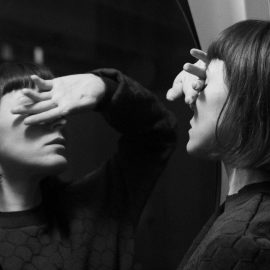

This article is an excerpt from the Shortform book guide to "The Defining Decade" by Meg Jay. Shortform has the world's best summaries and analyses of books you should be reading.
Like this article? Sign up for a free trial here .
Do you want to know how to make the most of your twenties What are the steps you can take to make sure you have a good future?
Your 20s can be challenging for many reasons, and you may be wondering how to make the most of your twenties so that you build toward success. Author of The Defining Decade Meg Jay offers some ideas.
Keep reading to find out how to make the most of your twenties.
How to Make the Most of Your Twenties
Here are a few steps according to Meg Jay that can help you learn how to make the most of your twenties.
Finding Work
Work is an important part of learning how to make the most of your twenties. To end up in a career you’re happy with down the road, you need to make difficult choices now—and the sooner you start, the better. Without purposeful planning, it’s easy to live day-by-day and put off the difficult tasks of making meaningful career choices. The following guidelines explore ways you can begin to craft a fulfilling work life.
Have a Productive Identity Crisis
An “identity crisis” is a period of youthful exploration during which a person can collect experiences and try out different paths in life without risk or obligation. It’s an important step toward developing an identity, and it has two main elements: reflection, through which you are thoughtful and aware of your life, and action, through which you collect experiences that help you learn about yourself. This collection of experiences becomes your “identity capital.”
Your identity capital is the collection of things you’ve done long enough or well enough that they become part of who you are. It’s the intangible currency we use to obtain jobs and relationships, and it includes your schools, clubs, jobs, hobbies, degrees, and experiences.
When having an identity crisis, many people focus more on the reflection piece than the action part, but it’s those who strike a good balance between the two who’ll end up with stronger identities and be more satisfied with their lives: better able to manage stress, more in control of their future, and find themselves following more original, unique paths. Seek out opportunities that will give you meaningful experiences you can learn from. Volunteer with a charity, work as an intern in an industry you’re interested in, or take classes in something you might like to pursue.
Pursue Weak Ties
Your identity, and your identity capital, is determined in large part by the people in your life. Though you may feel most comfortable around people you have strong ties with, it’s your weak ties that are most likely to actually help you move forward in your pursuits. Because those you share strong ties with are so similar to you, they have nothing new to add to your journeys, either in work or love. People with whom you have weak ties, though, can give you access to information and people you don’t otherwise know.
One of the best ways to begin the process of establishing an adult life is to reach out to those weak ties for information and possible opportunities. A great way to approach a weak tie is to ask her for a small, interesting, specific, and easy-to-accomplish favor.
When approaching someone for a favor, whether it be a letter of recommendation, an introduction, or an informational interview, follow a few guidelines:
- Research your target: Find out any relevant information that might connect you.
- Make yourself relevant: Find a connection to your target’s expertise.
- Make yourself interesting: Show some personality.
- Make your request specific: Don’t approach someone with a vague, “Can we meet for coffee?” Instead, let her know what exactly you’d like to discuss.
- Make your request easy to execute: Don’t ask for advice that would require lengthy, thoughtful responses on a broad subject like what you should do with your life.
How to Make the Most of Your Twenties in Finding Love
Another major part of learning how to make the most of your twenties is love. We get much less information and training on how to find a long-term partner than we do on how to find a career. And yet, choosing a marriage partner arguably has a more lasting effect on your long-term happiness. Giving the topic serious thought now, in your twenties, will decrease the chances you’ll have to settle later. The following sections are some guidelines that can help you approach the subject mindfully.
Don’t Date Down
When you date down, you date people you’ve outgrown in maturity, experience, and insight, and in doing so, you prevent yourself from finding a person you have a more meaningful connection with. A person often dates down when her identity stories reflect difficulties from her past: Someone who was neglected as a child or bullied as a teen often harbors negative beliefs about herself that cause her to make poor decisions as an adult.
Fortunately, you can change the stories you tell yourself about yourself. Listen carefully to your identity stories and recognize which parts of them come from other people’s judgments, evaluations, and advice. Examine those elements and decide which ones you can disregard. Then find a new story to take its place. If you’ve been raised by emotionally abusive parents, and now find yourself having serial one-night stands, look at who you are now and what you’ve accomplished, and focus on where those traits can lead you.
Seek a Similar Personality
Relationships are far more likely to be successful if the two people involved are fairly similar in personality. Personality is the overall way you interact with and react to the world: your outlook. It’s not about the experiences you’ve had but how you’ve handled them. It’s not about what you like but why you like it.
The “Big Five” personality model outlines five major personality traits that a person can have. A person has each of these characteristics in either low, medium, or high levels.
Understanding Your Brain and Your Body
In your twenties, your brain and body are developing in remarkable ways specifically designed by evolution to prepare you for the rest of your adulthood. This process is unique to this period of your life, and it won’t continue as you age.
Understanding the opportunities and limits of your brain and your body during this decade can help you better anticipate and plan for the future. Some of the steps involved in this process are detailed in the following sections.
Learn New Skills While You Can
During your twenties, your brain undergoes an explosion of neuron development, designed to allow you to master new skills that will help you in your adulthood. This is important because the skills you’ll need to navigate your adulthood are completely different from those you needed in school, which was a structured environment with measurable outcomes and well-defined paths to success.
Take Control of Your Primitive Brain
Twenty-somethings often have a difficult time regulating their emotional responses to interactions with others, at work or in their personal lives. While emotional distress can teach you valuable lessons that you can apply to future situations, if it’s constant, it can lead to depression, anxiety, and a general sense of being out of control.
To get control of your amygdala, reevaluate events by focusing on the facts, instead of the emotions. Examine your fears closely. The consequences you are afraid of are unlikely to be as severe as your emotions are telling you they are. For example, you are unlikely to be fired for small mistakes, and even if you are, you are unlikely to end up in a dead-end job for the rest of your life as a result.
Focusing on the facts of a situation rather than your emotional response to it can lessen, or even prevent, negative feelings from developing.
Looking Forward From Here
As you enter your adult life, you become entirely responsible for your own choices. You no longer have another adult figuring out things for you—it’s up to you now to figure out your life. There’s no magic formula and there’s no right or wrong answers on what kind of a life you should live. But there are right and wrong ways to go about establishing that life. Happiness as an older adult starts with the goals you set as a younger adult. It continues to develop as you consciously and intentionally move towards those goals.
Make choices. Opt for action. Don’t try to avoid the years ahead—you can’t. They’re coming whether you’re ready or not. Invest in them now, when it can still make a meaningful difference, so you’re not playing catch-up later.
Take your twenties seriously: You are crafting your life. With this information, you can learn how to make the most of your twenties.

———End of Preview———
Like what you just read? Read the rest of the world's best book summary and analysis of Meg Jay's "The Defining Decade" at Shortform .
Here's what you'll find in our full The Defining Decade summary :
- Why the twenties are your most important decade
- How you were fooled into thinking it was an extended period of youth and freedom
- Why you should use this decade to find personal and professional success






